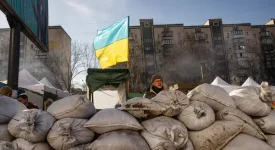EU Commissioner for Trade, Cecilia Malmström, said that there was “no direct relationship” to be found between the controversial arbitration tribunals in the draft of the Transatlantic Trade Investment Partnership (TTIP) and increased investment. The European Commission says that it is unclear whether the investment protection envisaged by the agreements such as TTIP or CETA (Comprehensive Economic and Trade Agreement between the EU and Canada) will boost investment or not.
Yet, most research papers have not found any “direct and exclusive causal relationship” between international investment agreements and foreign direct investment (FDI). The Commission, however, argues that the direct relationship is not identifiable due to the existence of a variety of factors influencing investment and due to the complexity of economic relations. To that end, Commissioner Malmströmpointed out that a “long term and transnational link” between investment protection deals and investment has in factbe found by various studies conducted on this topic.The investment protection embedded in the TTIP and CETA has proven to be rather controversial out of fears that regular court proceedings could be jeopardized. Under the current proposal, arbitration tribunals could be used to protect foreign investors, which could have a negative impact on regular courts.
To address these concerns, the Commission has pledged to eliminate weak points in conventional arbitration proceedings. The Commissioner moreover said that the investment protection should exclusively be in the EU’s domain, which would likely facilitate the implementation of the TTIP and the CETA. However, if Brussels shared the competence with Member States, national governments would have to agree, which would undoubtedly complicate the adoption of both deals.Arbitration is in the competence of a number of specialized bodies while proceedings are usually carried out privately and mostly result in a settlement between the parties. If no settlement is achieved, the case is passed on to formal tribunals.
Article Tags:
Canada · Cecilia Malmström · CETA · Comprehensive Economic and Trade Agreement · Transatlantic Trade Investment Partnership · TTIPArticle Categories:
ECONOMY & TRADE






